Taking power at the age of 32, over the past nearly four decades, Prime Minister Hun Sen has brought Cambodia from dark times to stability and development.
Hun Sen announced on July 26 that he would no longer be Prime Minister of Cambodia and that his son Hun Manet would lead the new government for the next three weeks. Hun Sen is expected to be appointed as Chairman of the Royal Council, a nine-member body responsible for selecting the King of Cambodia.
Prime Minister Hun Sen affirmed that his resignation is to build a stable and long-term foundation for the country to develop, emphasizing that he will not interfere with the work of Mr. Hun Manet in the future. This decision will also end nearly 4 decades of power of the man who led Cambodia through many challenges.
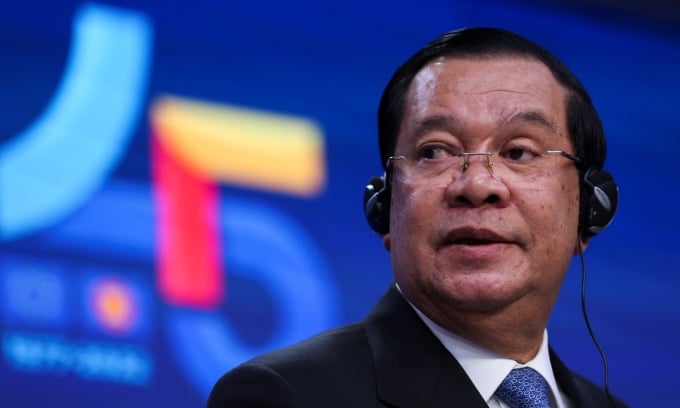
Cambodian Prime Minister Hun Sen speaks in Brussels, Belgium, in December 2022. Photo: Reuters
Mr. Hun Sen was born in 1952 in Peam Koh Sna village, Stung Trang district, Kompong Cham province. As a child, because his family was poor, he left his hometown to go to Phnom Penh and lived in a pagoda so he could attend Lycée Indra Dhevi.
As the civil war raged in Cambodia, he became a guerrilla fighter and gradually entered politics. In 1975, the genocidal Pol Pot regime came to power and implemented a policy of forcing urban residents to move to the countryside, torture, mass executions, and forced labor, leading to malnutrition and disease throughout the country.
Prime Minister Hun Sen once recounted that at that time he had "nothing left but two empty hands and was waiting for death", so he decided to go to Vietnam with a number of patriotic Cambodian officials on June 20, 1977 to express the Cambodian people's desire for help.
He said that based on the domestic and international political situation at that time, the only country capable of helping was Vietnam. In response to the call of the Kampuchean United Front for National Salvation, Vietnam helped the Cambodian revolutionary armed forces liberate the nation from genocide.
Vietnamese volunteer soldiers stood shoulder to shoulder with the revolutionary armed forces and Cambodian people to conduct many campaigns and battles in different provinces, cities and localities and by January 7, 1979, completely liberated the capital Phnom Penh.
Prime Minister Hun Sen emphasized that without the "journey to overthrow the Pol Pot genocidal regime" that began on June 20, 1977 and the events that followed, Cambodia would not be where it is today.
After the fall of the Pol Pot regime, as a member of the Kampuchean United Front for National Salvation, Hun Sen was appointed foreign minister of the then People's Republic of Kampuchea (PRK) at the age of 27. In 1985, he was elected prime minister by the parliament after the death of his predecessor Chan Sy.
At 32, Mr Hun Sen became the world's youngest prime minister at the time and he has repeatedly expressed pride in this achievement.
At the inauguration of a pagoda in the capital Phnom Penh in April, Mr. Hun Sen said he had "broken the Guinness World Record" for his political career, having spent four decades as prime minister and 44 years serving in the government.
"The first record is that I became the youngest foreign minister, the second record is the honor of becoming the youngest prime minister and finally, I am the longest-serving prime minister in the world," he said.
In 1993, Hun Sen and his party, now the Cambodian People's Party (CPP), participated in UN-supervised elections. The royalist FUNCINPEC party, led by Prince Norodom Ranariddh, the eldest son of King Norodom Sihanouk, won more votes in the election, but Hun Sen maintained his leadership as second prime minister, sharing power with Prince Ranariddh, who was first prime minister.
The CPP still retained much of its political dominance, especially in rural Cambodia.
In the 1998 elections, the CPP won a majority of seats in parliament and formed a coalition government with Hun Sen as Cambodia's sole prime minister, ending a period in which the country had two prime ministers. Prince Ranariddh was then elected president of the parliament.
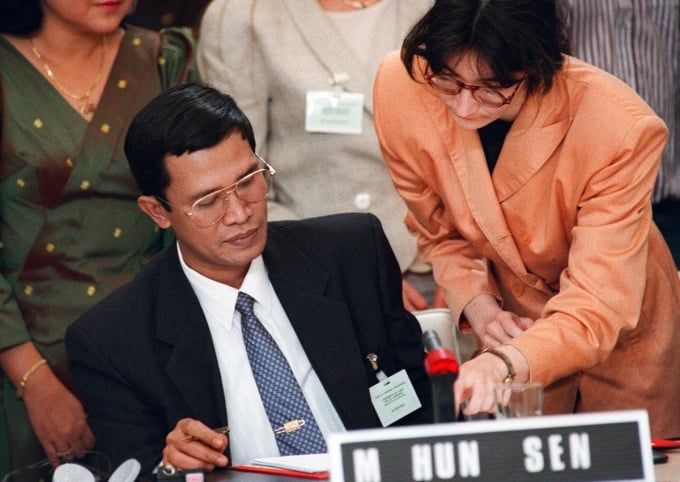
Mr. Hun Sen signed the Paris Peace Accords on October 23, 1991, ending 21 years of civil war in Cambodia. Photo: AFP
In the 2003 national election, the CPP again took the lead and Hun Sen resumed his position as Prime Minister in July 2004.
In 2008, the CPP continued to win a resounding victory in the general election, winning three-quarters of the seats in parliament, helping Cambodian Prime Minister Hun Sen.
"Without the support of the people, no one, no matter how strong, can hold power for so long," he said.
On the final day of campaigning on July 21, about 60,000 CPP supporters gathered in a central square in Phnom Penh from dawn to hear a speech by Hun Manet, son of Prime Minister Hun Sen, who will succeed him.
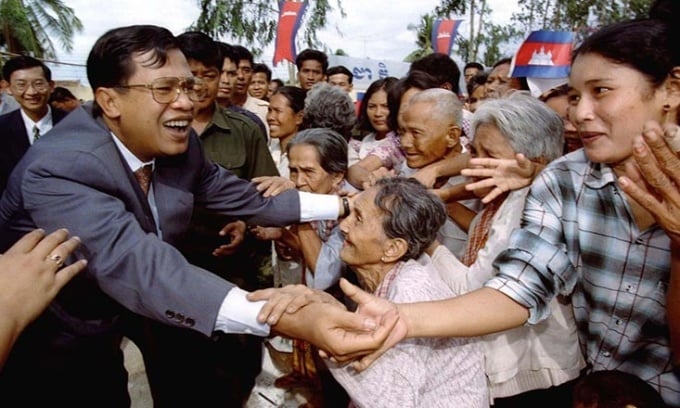
Mr. Hun Sen shakes hands with supporters in 1997. Photo: Reuters
Ly Chanthy, who braved pouring rain to watch Hun Manet's parade through the capital, said she still remembers the dark days under the genocidal Pol Pot regime and will forever be grateful to Prime Minister Hun Sen and happy to support his son.
“I will vote for the CPP until I die,” said the 58-year-old. “I will never forget that he saved our lives from the Pol Pot regime.”
Vu Hoang (According to CNA, Phnom Penh Post, Britanica )
Source link




![[Photo] Phuc Tho mulberry season – Sweet fruit from green agriculture](https://vstatic.vietnam.vn/vietnam/resource/IMAGE/2025/4/10/1710a51d63c84a5a92de1b9b4caaf3e5)
![[Photo] Prime Minister Pham Minh Chinh chairs meeting to discuss tax solutions for Vietnam's import and export goods](https://vstatic.vietnam.vn/vietnam/resource/IMAGE/2025/4/10/19b9ed81ca2940b79fb8a0b9ccef539a)


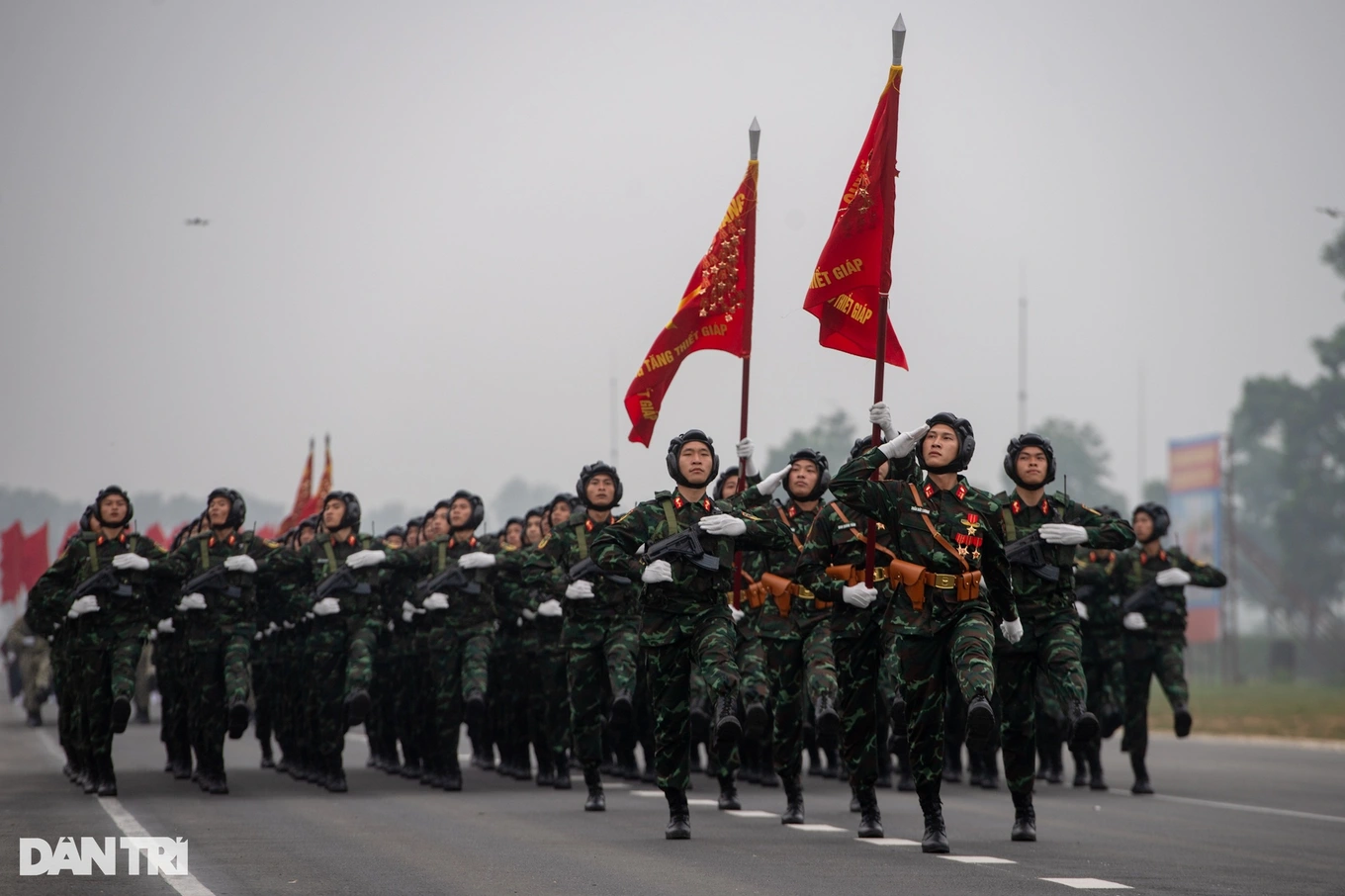

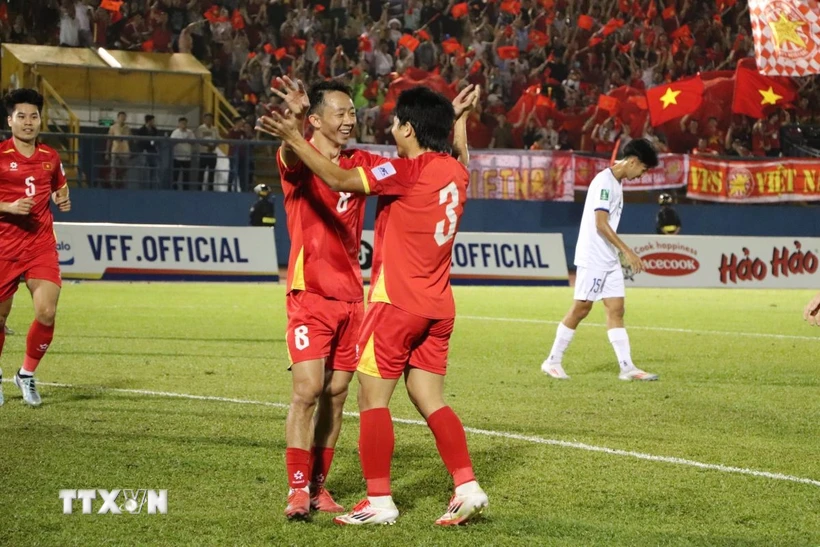

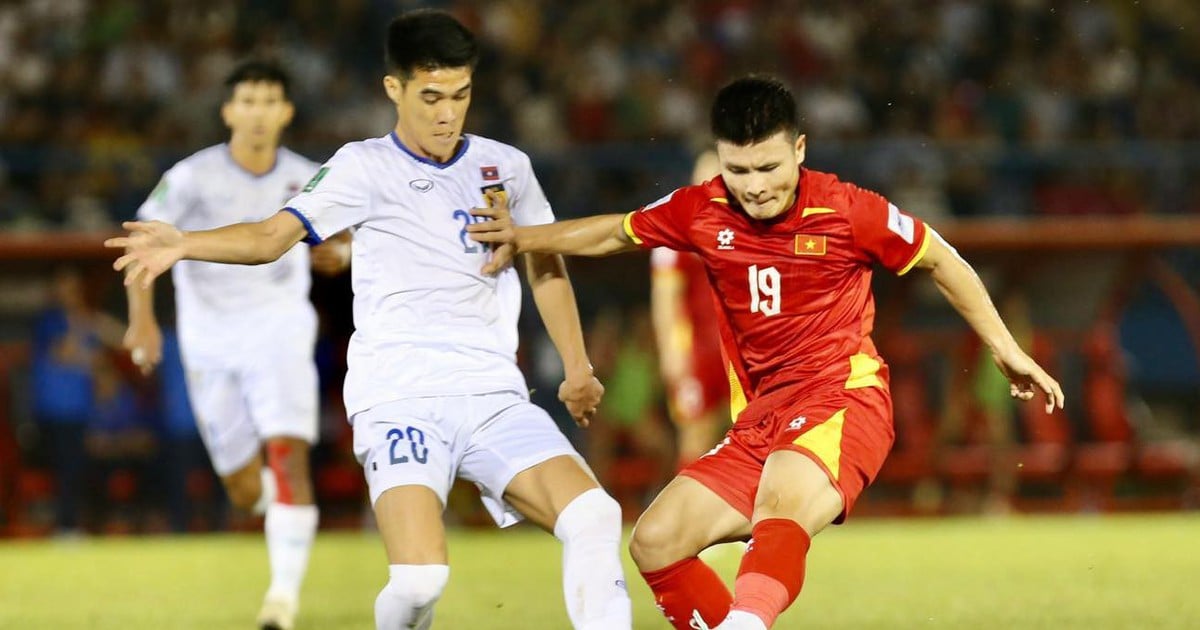

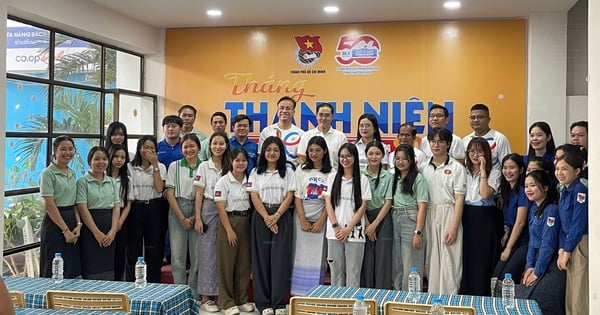

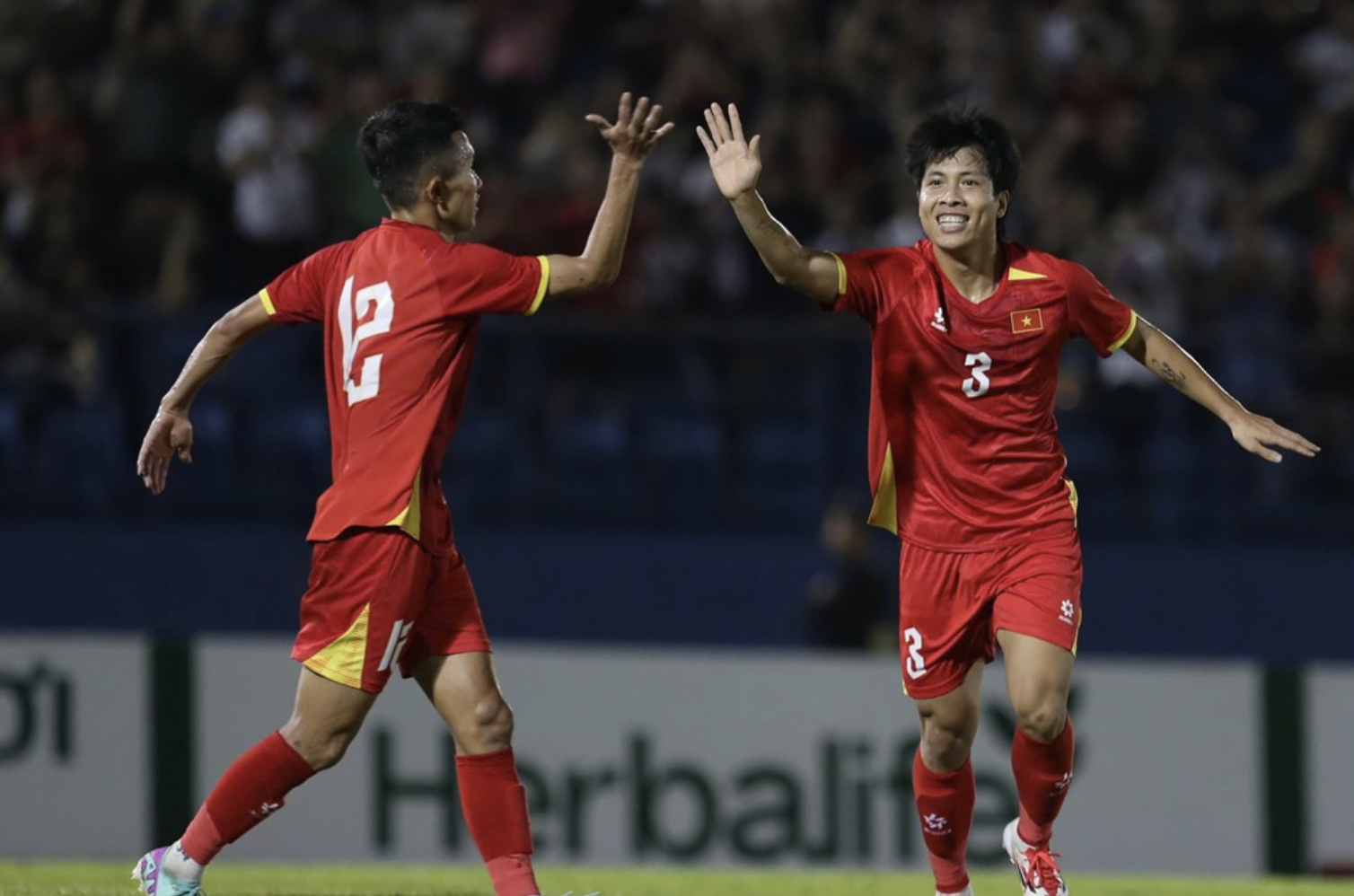

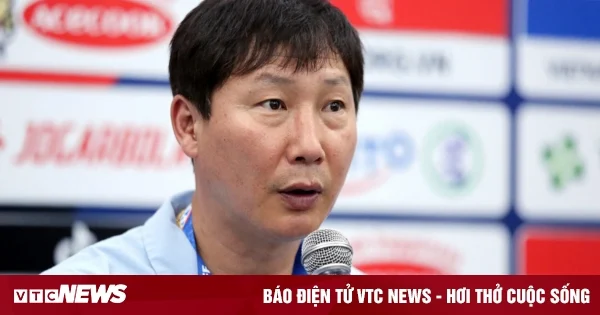






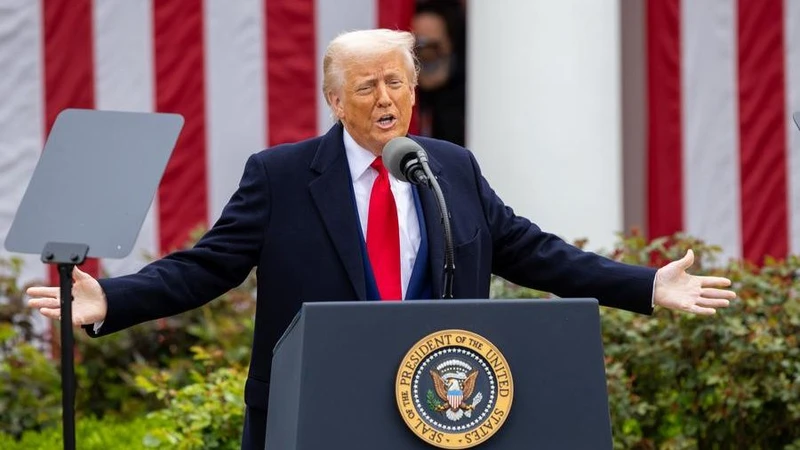










![[Photo] Unique folk games at Chuong Village Festival](https://vstatic.vietnam.vn/vietnam/resource/IMAGE/2025/4/10/cff805a06fdd443b9474c017f98075a4)



































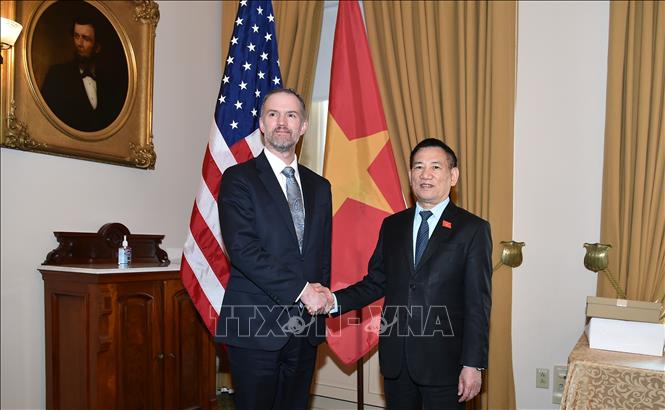


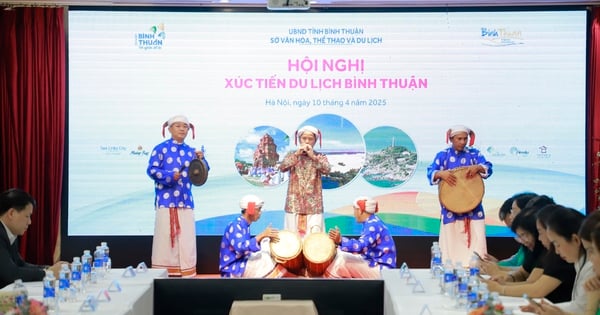







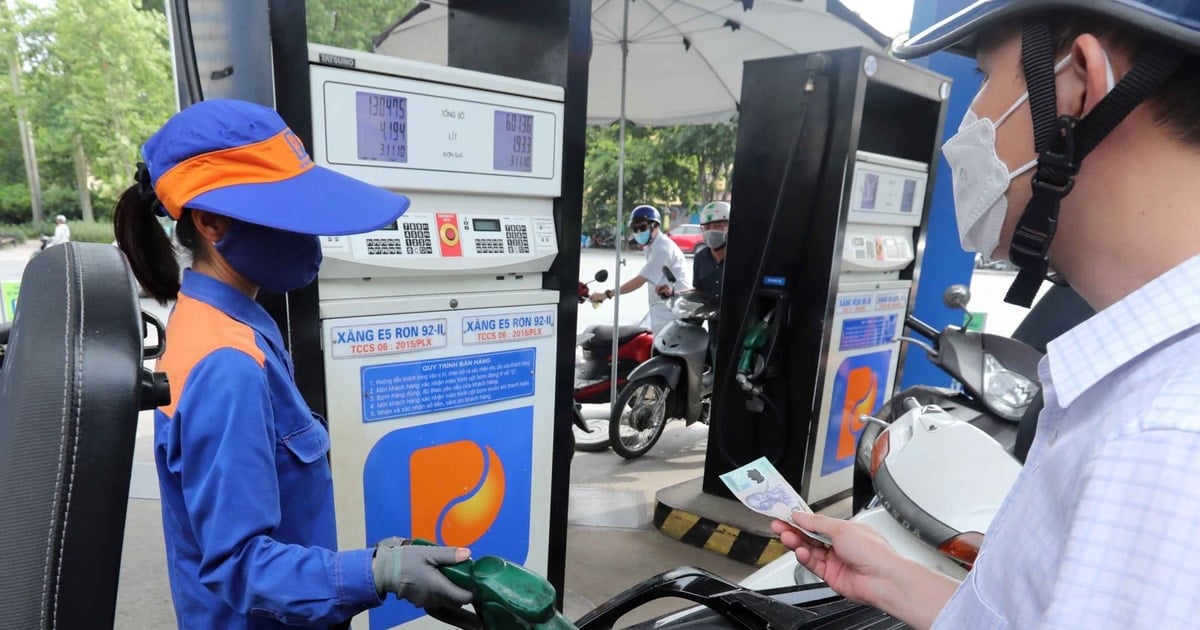



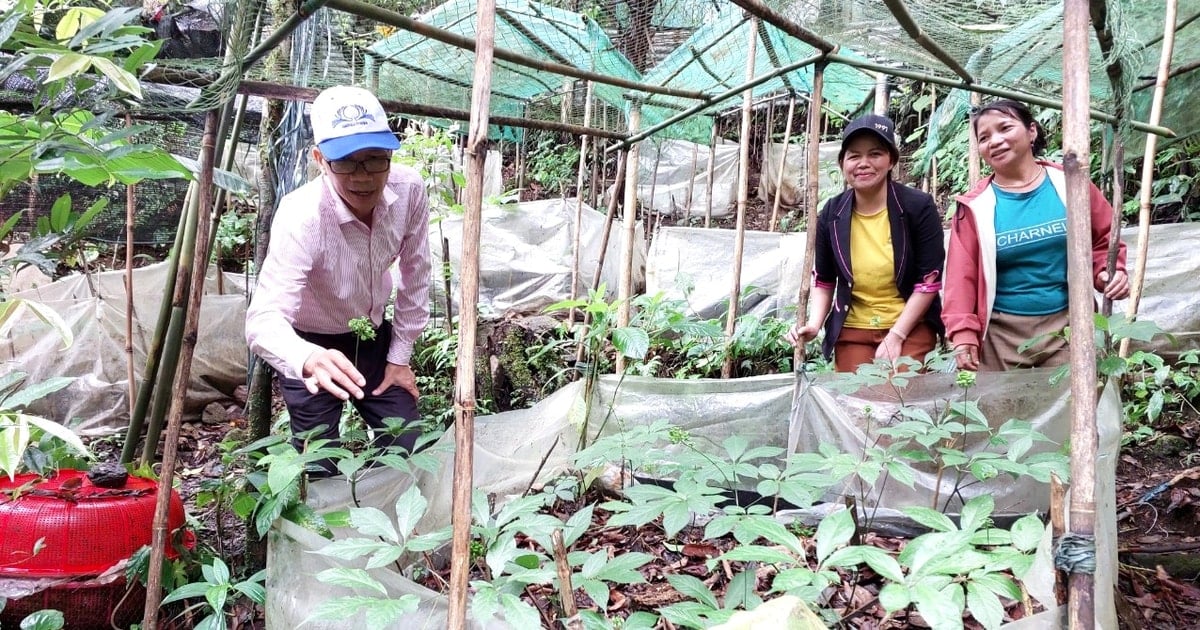

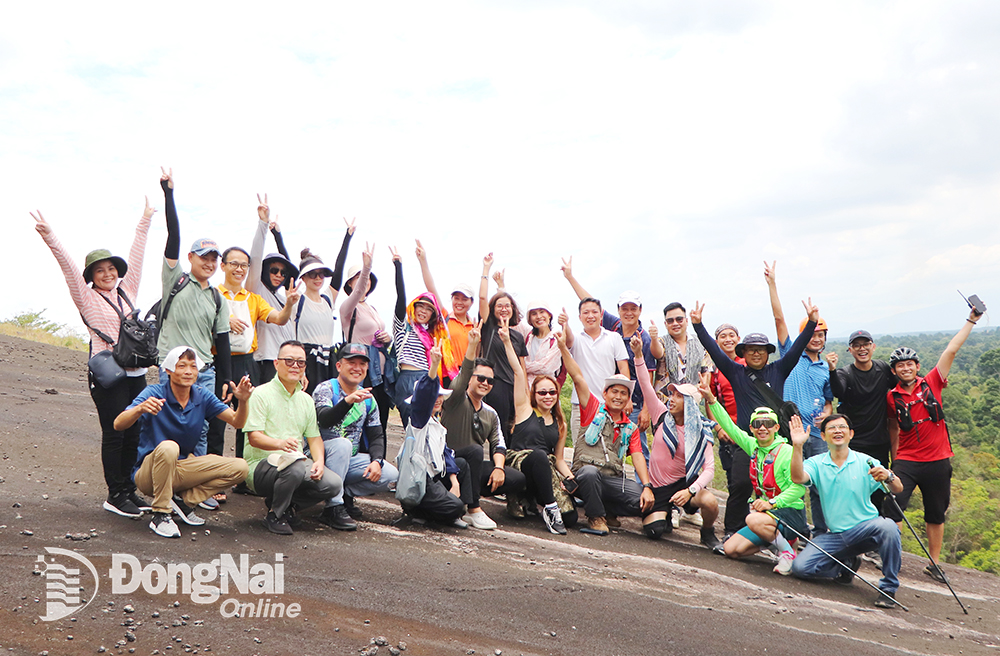









Comment (0)